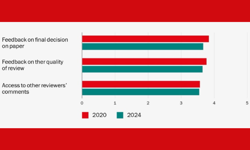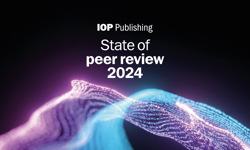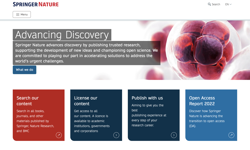
Most researchers are using AI tools in their research practice, despite concerns over the loss of critical thinking skills, respect for intellectual property (IP) rights, and mistrust in AI providers, according to new research from Oxford University Press (OUP).
Insights have been gathered from a survey of more than 2,000 researchers across geographies, disciplines—including Humanities, STM, and Social Sciences—and at different career stages. In response, OUP says it commits to support academic researchers in harnessing AI to improve research outcomes and protect their role by working closely with technology providers to define clear principles for future collaboration.
The survey results reveal key considerations in researchers’ decisions to engage with AI, including what excites and concerns them about the technology, and how they already use—or plan to use—the associated tools.
Of those surveyed, three quarters of researchers (76%) are already using AI, across all stages of the research journey—with machine translations and chatbots cited as the most popular tools, followed by AI-powered search engines or research tools. At present, AI is most used for discovering, editing, and/or summarizing existing research.
Respondents also acknowledged the impact AI will have on the academic research community, with more than a quarter (28%) saying it will revolutionize how academic research is conducted and disseminated. Additionally, 27% of respondents are excited about the prospects of AI for academic research. Helping with data analysis and surfacing content were mentioned as ways it could potentially improve research outcomes, with more than a third believing that using AI in their work will save time. Amongst those who have already used AI in their research, 67% feel it has benefited them to some degree.
However, there are concerns around how AI will impact academic research more generally, with 1 in 3 worried that researchers’ skills will be negatively impacted. This is a widespread concern across all subject disciplines; a quarter of respondents (25%) feel that AI technology reduces the need for critical thinking and could damage the development of these fundamental skills for the future.
Another major concern raised by the research is trust, added OUP:
- Only 8% of researchers trust that AI companies will not use their research data without permission.
- Just 6% believe AI companies will meet data privacy and security needs.
- 3 in 5 feel that the use of AI in research could undermine intellectual property, and result in authors not being recognized appropriately for use of their work.
Consequently, the majority of respondents (69%) feel it is important to fully assess the implications of using AI tools before applying them to their own research, with just 1 in 10 claiming they would not look for guidance on using AI in academic research. There are inconsistencies with how institutions are responding to AI, with 46% saying that the institution they work at has no AI policy, and over a quarter (26%) unsure whether a policy exists. Currently, the majority would look to academic societies as their main source of guidance.
The survey results also highlight differences in the views of early career researchers, and those who have been part of the academic research community for many years. Dividing respondents into categories based on their attitudes towards AI shows, perhaps unanticipated, contrasts between age demographics:
- Baby Boomers & Gen X have a larger proportion of those fully embracing AI, whereas Millennials saw more respondents who are completely against AI.
- A quarter (25%) of respondents in the early stages of their careers hold sceptical or challenging views of AI and are more divisive in their opinions, with fewer expressing neutral views than later career researchers.
- Those later in their careers are more open to the possibility of using the technologies in their work, with respondents more averse to AI usage dropping to just 19%.
David Clark, managing director of OUP’s Academic Division, said: “Throughout OUP’s history we have embraced new opportunities offered by technological advancement—in line with our mission to publish rigorous, high quality academic resources—responding to the needs of the academic community, while ensuring that the scholarship we publish remains valued and protected.
“This research will help OUP to understand how researchers are thinking about generative AI and its use in their work. As these technologies continue to rapidly develop, our priority is in working with research authors and the broader research community to set clear standards for how that evolution should take place.
"This is a fast moving, complex area—but we strongly believe that publishers like OUP are well positioned to act as a bridge between research authors and tech providers, making a real difference as these tools continue to evolve.
"We are actively working with companies developing LLMs, exploring options for both responsible development and usage that will not only improve research outcomes, but also recognize the vital role that researchers have—and must continue to have—in an AI-enabled world.”
From next month, OUP says it will host a series of webinars to delve deeper into the topics covered in this research. The webinars will bring together academic research authors from across the world to discuss how those in the research community can work together to build a sustainable, AI-enabled future.
Keep up-to-date with publishing news: sign up here for InPubWeekly, our free weekly e-newsletter.











